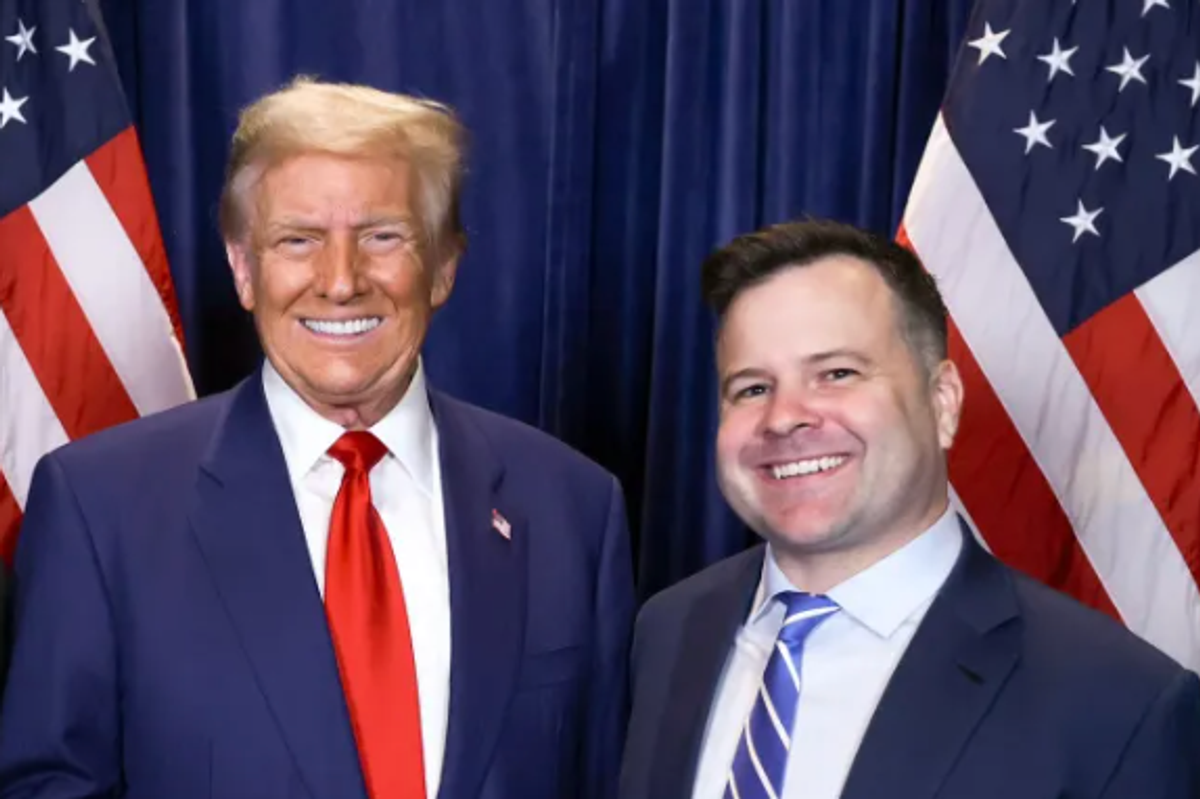To Enrich His Cronies, Trump Will Make Homes Even More Expensive

President Donald Trump and Federal Housing Finance Agency Director William Pulte
In Washington no bad idea stays dead for long. Therefore it should not be surprising that Donald Trump is planning to move forward with plans to privatize Fannie Mae and Freddie Mac, the mortgage giants that have been in government conservatorship for almost two decades.
As with many of Trump’s moves, it is not clear what problem this is meant to solve. During the time they have been in conservatorship, Fannie and Freddie have been securitizing mortgages at a low cost and have not experienced any substantial management problems.
There is of course one problem that privatizing Fannie and Freddie would solve. It would be yet one more way that the financial industry could run up profits and salaries for top executives at the expense of the rest of us.
The Congressional Budget Office calculated that having private institutions replace Fannie and Freddie in their current form would add roughly 20 basis points, or 0.2 percent, to the cost of securitizing mortgages. With around $1 trillion in mortgages securitized each year, that would come to $2 billion annually. That is not a lot in the context of the federal budget (only 0.03 percent), but it is four times the annual appropriation for the Corporation for Public Broadcasting that got Trump so upset.
And in the case of privatizing Fannie and Freddie, we would get nothing for it except a less efficient mechanism to securitize mortgages. The idea is similar to the plan to privatize Social Security. Social Security is an extremely efficient public system, but many people in the Trump administration see the opportunity to generate trillions of dollars in fees for the private sector by turning it into a private system.
As with a privatized Social Security system, privatizing Fannie and Freddie would expose the country to needless risk. The basic problem is that it would allow a private corporation to operate with a government guarantee against losses. Such a guarantee would give a private securitizer an enormous incentive to securitize bad mortgages to increase volume and make more profits. That is what happened with the housing bubble and the subsequent collapse and financial crisis in 2008 and 2009.
If a private securitizer is carefully regulated, it can limit the risk of reckless lending. But does anyone really believe that the Trump administration would carefully regulate the financial industry?
The basic story line here is that in order to give his campaign donors in the financial industry even more money, Trump is planning to privatize a perfectly well-functioning public system for securitizing mortgages. Doing so would almost certainly increase the cost of mortgages for homebuyers; the only question is by how much. And it raises the risk for future financial crises and government bailouts.
Making the financial sector less efficient to hand more money to contributors is very much front and center in the Trump administration. It’s the same rationale behind Trump’s decision to promote cryptocurrency—which is making Trump and his friends tens of billions of dollars—as opposed to letting the Federal Reserve Board issue a digital currency, which would save Americans tens of billions of dollars in bank and credit card fees.
Eviscerating the Consumer Financial Protection Bureau followed the same pattern. Trump is giving a green light to his finance buddies to find ever more creative ways to rip off businesses and the general public.
It’s in that context that we all should understand Trump’s drive to privatize Fannie and Freddie. How could anyone oppose it?
Dean Baker is a senior economist at the Center for Economic and Policy Research and the author of the 2016 book “Rigged: How Globalization and the Rules of the Modern Economy Were Structured to Make the Rich Richer.” A version of this column originally appeared on his Substack site.
Money Trail is a fiscally sponsored project of the Alternative Newsweekly Foundation, a 501(c)(3) public charity, EIN 30-0100369. Donations are tax-deductible to the extent allowed by law.
Reprinted with permission from The Money Trail.
- White House Targets Federal Reserve's Cook With Authoritarian 'Investigation' ›
- Home Prices Will Rise When Trump Privatizes Fannie And Freddie Mortgages ›
- Hedge funds could make billions from a Fannie Mae and Freddie ... ›
- Trump is planning a massive IPO of the government's mortgage ... ›
- Trump Tweets Offer Glimpse of Plans for Fannie Mae and Freddie Mac ›
- Trump's plan to remake mortgage finance baffles housing experts ... ›
- Trump seeks pitches from bank chiefs on Fannie, Freddie stock ... ›
- Trump Seeks to Sell Fannie Mae and Freddie Mac Shares to Public ... ›








